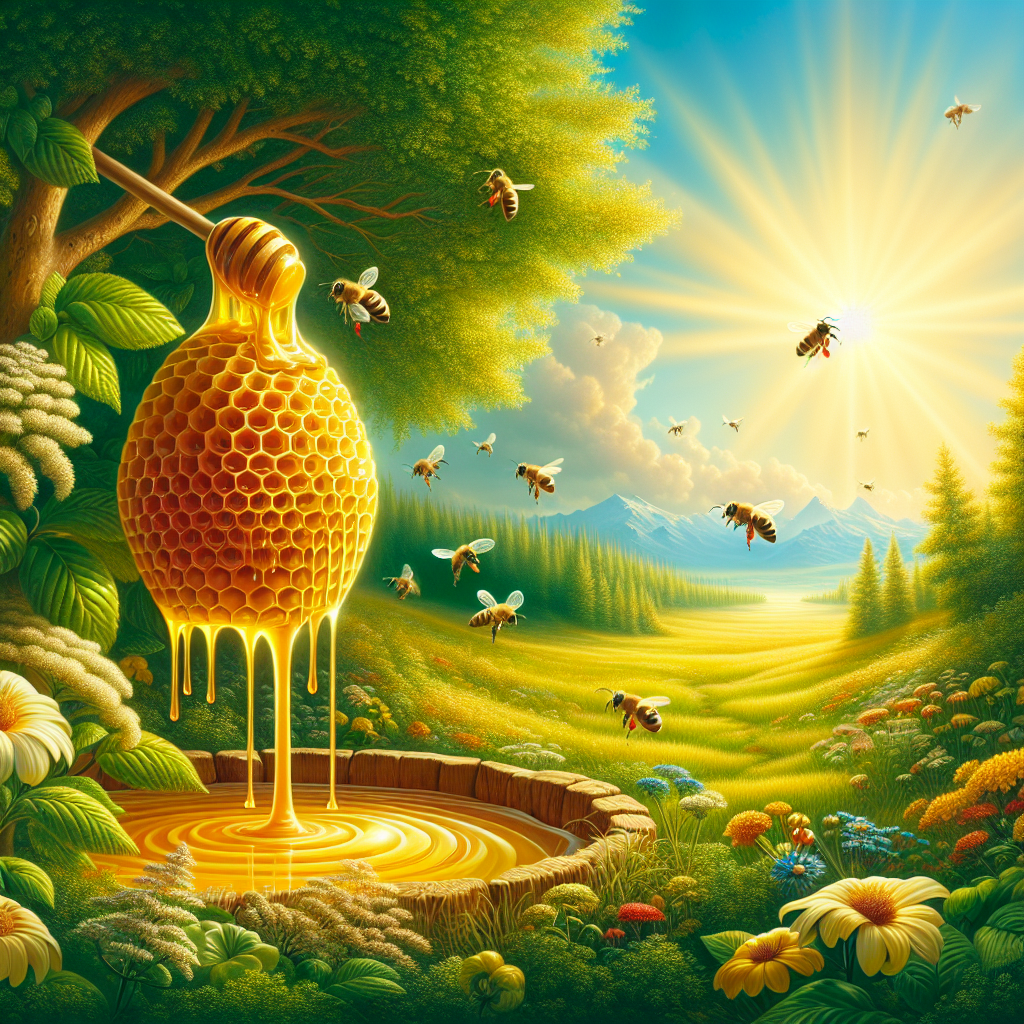Nature’s Sweet Remedy: Honey as a Microbial Marvel
Honey, often hailed as "liquid gold," has enveloped civilizations for centuries with its alluring sweetness and myriad health benefits. It has delighted taste buds while simultaneously soothing sore throats, aiding in wound healing, and even tackling infections. Yet, beneath this sweet veneer lies a complex web of microbiology that invites both wonder and caution.
The Microbiology Behind Honey’s Brilliance
When one considers honey, visions of golden drizzles on toast come to mind. However, honey is home to a vibrant microbial community. Comprising various microorganisms, honey’s microbiome raises questions about its safety, especially with its production methods and whether it’s consumed raw or pasteurized. The diverse microbial inhabitants—shaped by bee species, floral sources, and geographic contexts—play a pivotal role in honey’s therapeutic properties and its preservation against spoilage.
The Curious Role of Microbes
Honey is produced through a fascinating process. Bees gather nectar and honeydew from flowers, undergoing transformations within their hives that introduce beneficial microbes. Instances of lactic acid bacteria, for example, enhance the honey’s acidity, protecting it from spoilage. Conversely, certain yeasts can associate with high moisture, signaling caution in storage conditions.
Remarkably, honey naturally resists the onslaught of spoilage due to the enzyme glucose oxidase, which produces hydrogen peroxide, creating an inhospitable environment for many harmful bacteria. This defense mechanism showcases not only the wonder of nature but reinforces a lesson about stewardship—our responsibility to care for this remarkable creation.
The Healing Power of Honey
Particularly notable is Manuka honey, famed for its heightened antibacterial activities linked to methylglyoxal. While promising in applications, like wound care and easing throat discomfort, its acceptance into mainstream healthcare awaits further verification through comprehensive research.
As we explore honey’s potential within the medical tapestry, one cannot help but draw parallels to biblical principles of healing and care. Proverbs 16:24 states, “Gracious words are like a honeycomb, sweetness to the soul and health to the body.” This verse beautifully underscores the holistic harmony found in nature—where sweetness, both literal and metaphoric, contributes to our health.
Navigating Safety and Consumption
While honey is often celebrated for its safety, caution remains necessary, particularly for infants under one year due to the risk of botulism spores. As highlighted in various health guidelines, understanding proper storage and processing can mitigate these risks.
Navigating the balance between enjoying honey’s benefits and ensuring safety encapsulates a broader spiritual lesson on wisdom. Just as we must discern our choices in health, we’re reminded of the importance of intentional living—seeking wisdom and understanding in our actions.
A Diverse World of Honey
The immense variety of honey is striking, influenced by floral sources, bee species, and environmental factors. Each type offers unique flavors and potential health benefits, encouraging personal exploration and connection to the environment.
In light of this diversity, it is essential to appreciate the gifts of creation around us, recognizing both the beauty and complexity of life as reflections of divine creativity.
Looking Ahead: Honey and Our Spiritual Reflection
As research continues to unravel the complexities of honey, its intersections with our health reveal an opportunity for deeper reflection. The blend of enzymes, sugars, and natural compounds suggests a metaphor for our lives—an intricate balance of sweetness and purpose.
Honey, while enjoyed for its flavor, becomes a call for mindfulness in our health practices and spiritual lives. It encourages an awareness of how we interact with creation, urging us to consider stewardship of the gifts around us.
Encouraging Takeaway
As we savor the taste of honey, let us also reflect on the profound spiritual lessons it embodies—a reminder of care, stewardship, and the sweetness of life illuminated by wisdom. In all things, whether sweet or challenging, may we find opportunities for reflection and gratitude.
Let us remember the words of Jesus in Matthew 7:7: “Ask, and it will be given to you; seek, and you will find; knock, and it will be opened to you.” This promise invites us to inquire deeply into both our faith and our understanding of the bounties of nature surrounding us.
In closing, honey serves not only as a delightful addition to our table but also as a source of inspiration and inquiry. Embracing this natural marvel can lead to meaningful reflections and a richer appreciation for the healing and nourishing aspects of creation.
Explore and dig up answers yourself with our BGodInspired Bible Tools! Be careful – each interaction is like a new treasure hunt… you can get lost for hours 🙂


